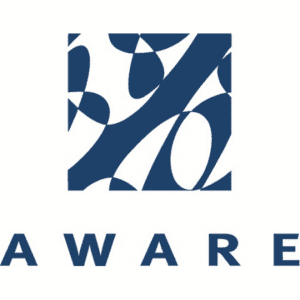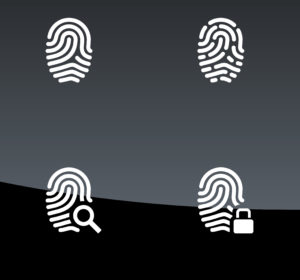FindBiometrics President Peter O’Neill recently had the chance to speak with David Benini, VP of Marketing at Aware—an industry veteran biometric software company. After a brief recap of the company’s long history, Benini gave insight into how Aware has maintained its leading position for over 20 years in the dynamic biometrics industry. The conversation went on to detail the fresh news of Aware’s newly introduced FIDO Certified product suite and where the biometrics market may be heading in the not too distant future. Read the full interview below.
Peter O’Neill, President, FindBiometrics (FB): For our readers not familiar with your company, can you please provide us with a brief overview of your business?
 David Benini, VP Marketing, Aware: Aware is a biometrics software company. We’ve been in the market since the early 1990s, when we were the first to provide SDKs for standards-based compression and sharing of fingerprint images. These were critical for enabling the centralized search services of the time, such as the FBI IAFIS, and they remain so today.
David Benini, VP Marketing, Aware: Aware is a biometrics software company. We’ve been in the market since the early 1990s, when we were the first to provide SDKs for standards-based compression and sharing of fingerprint images. These were critical for enabling the centralized search services of the time, such as the FBI IAFIS, and they remain so today.
Those products are still big sellers for Aware and we continue to have a strong focus on enabling interoperability and modular architectures, but today we provide a much broader range of solutions for biometric search and authentication, for applications from border management, defense, and civil ID to mobile security. We’re a NASDAQ-listed company based near Boston, but about 40 percent of our business comes from overseas in high-growth markets like Africa, Latin America, and the Middle East.
FB: So Aware has been one of the leading biometric companies for some time. How have you kept up with all the changes in the industry?
 Aware: It’s true, biometrics has been quite a dynamic market. When we first began offering products, the community was small, criminal investigation was the only notable application, and the term “biometrics” was barely used; all evident from this 1993 version of the NIST interop standard. Few then could have imagined that in twenty-some years, biometrics would become a ubiquitous mass-market technology.
Aware: It’s true, biometrics has been quite a dynamic market. When we first began offering products, the community was small, criminal investigation was the only notable application, and the term “biometrics” was barely used; all evident from this 1993 version of the NIST interop standard. Few then could have imagined that in twenty-some years, biometrics would become a ubiquitous mass-market technology.
For Aware, keeping up with the changes has been about two things: product development and global presence. As new identity applications emerged over the years—border control, e-passports, and most recently mobile authentication—each has had special requirements. We’ve had to develop new products—often with urgency—but they had to be sufficiently durable and supportable to fit our COTS product model. A lot has changed, but fundamentally we remain a company good at packaging high-performance algorithms into durable off-the-shelf products, and assembling those products into modular, well-supported solutions that solve problems.
On the second point, we have also had to expand our global presence in response to rapid demand growth abroad. Our product set has grown particularly quickly in the last few years, and in that time we’ve sold products in over 50 countries for just about every application of biometrics you can imagine.
FB: What products are driving Aware’s growth?
Aware: Several years ago, Aware introduced our Nexa™ line of fingerprint, face, and iris matching SDKs. More recently, we introduced Aware’s ABIS called Astra™, which I recently talked a bit about on Aware’s Biometrics Blog. Astra is a platform that distributes biometric algorithms like Nexa or others across a large number of computing nodes, where biometric comparison computations are performed. This enables not only rapid search of very large biometric databases but also high volumes of cloud-based biometric authentications. It’s a different approach in that the cluster computing capability is abstracted from the biometric algorithms; as an example, we’ve deployed Astra with a voice authentication algorithm from another supplier. Astra leverages several open source platforms developed for large-scale, mass-market systems and optimizes them for biometrics. As I mention in the blog post, some of the corollary benefits of such a platform is the built-in redundancy that enables robust fault tolerance and disaster recovery that are critical features of just about any biometric system.
FB: You mentioned Aware is enabling biometric search in a variety of emerging vertical markets. Any examples?
 Aware: We are definitely seeing newer applications for biometric identification in markets like Latin America and Africa. These were also mentioned in blog articles. An example is biometrics for fraud prevention and identity proofing in Brazil, where an Aware solution is used to provide a biometrics-as-a-service offering to check the identity of an individual applying for new accounts or government benefits. Another application that we have seen is for SIM card registration, as part of know-your-customer (KYC) efforts aimed at preventing individuals from using mobile phones anonymously for criminal purposes.
Aware: We are definitely seeing newer applications for biometric identification in markets like Latin America and Africa. These were also mentioned in blog articles. An example is biometrics for fraud prevention and identity proofing in Brazil, where an Aware solution is used to provide a biometrics-as-a-service offering to check the identity of an individual applying for new accounts or government benefits. Another application that we have seen is for SIM card registration, as part of know-your-customer (KYC) efforts aimed at preventing individuals from using mobile phones anonymously for criminal purposes.
For these types of civil applications, the scale very quickly gets into the millions of individuals. It’s not just about searching watch lists of a few thousand; it’s for doing duplicate checks across the whole database that ensure fraudsters can’t establish multiple fraudulent identities. So a critical application for many of these newer verticals is the ability to prevent duplicate identities in a system.
FB: What about mobile? It seems that’s where most of the growth is.
Aware: There’s certainly lots of growth potential there, it’s basically a whole new market. Replacing passwords is a very different proposition than biometric identification and duplicate checking, but we see many of the same technical challenges. Modern biometric authentication solutions will ultimately require scalability. They will need standards compliance and interoperability, as evident from the broad support for FIDO® standards. They will need to be convenient for users; provide easy biometric capture and reliable matching performance. And they will need to be secure. These are the areas we focus on with our mobile solutions.
FB: So what is Aware offering that market?
 Aware: I just mentioned FIDO. Aware recently introduced FIDO® Suite, a complete line of FIDO® Certified products for biometric authentication, including Aware FIDO® Server, Aware FIDO® Client, and Aware FIDO® Face Authenticator. The new suite was designed upon well-established products like PreFace™ Mobile for facial autocapture and liveness detection, Nexa|Face™ Mobile for matching, and our market-leading Biometric Services Platform (BioSP™). Together, they represent a complete suite of FIDO UAF products—Authenticator, Client, and Server—that includes authentication using “selfies”. We’ll introduce new authenticators down the road.
Aware: I just mentioned FIDO. Aware recently introduced FIDO® Suite, a complete line of FIDO® Certified products for biometric authentication, including Aware FIDO® Server, Aware FIDO® Client, and Aware FIDO® Face Authenticator. The new suite was designed upon well-established products like PreFace™ Mobile for facial autocapture and liveness detection, Nexa|Face™ Mobile for matching, and our market-leading Biometric Services Platform (BioSP™). Together, they represent a complete suite of FIDO UAF products—Authenticator, Client, and Server—that includes authentication using “selfies”. We’ll introduce new authenticators down the road.
FB: You and I have had many discussions over the years about the challenges facing the industry. As an industry veteran, with all of the momentum behind biometrics, what excites you most about the marketplace for biometrics?
Aware: One thing I’ve enjoyed about working in the biometrics market is that it’s been a fast ride on a curvy road, with surprises around every corner. A lot of what has transpired has been impossible to foresee, but it’s always fun to try.
So if I put my futurist hat on, biometrics will become virtually invisible; one way or another, our devices and networks will know when we are there and when we’re not, if we want them to. We’ll also see demand for better authentication continue to drive innovation of new biometric modalities, unlike for biometric search, where the performance requirements tend to constrain our options.
Finally, our digital identities will be among our most valuable personal assets and we will wield and protect them like currency. Biometrics will be how we will establish our uniqueness and earn trust in the digital realm as we engage in smart contracts that automate our financial transactions and outsource “trust” to block chains. As our virtual world grows, it will be even more important to strengthen the connection between our digital proxies and our physical selves, and biometrics are how we will do that.
FB: Wow, that’s totally far out.
Aware: Thank you, Peter.


Follow Us